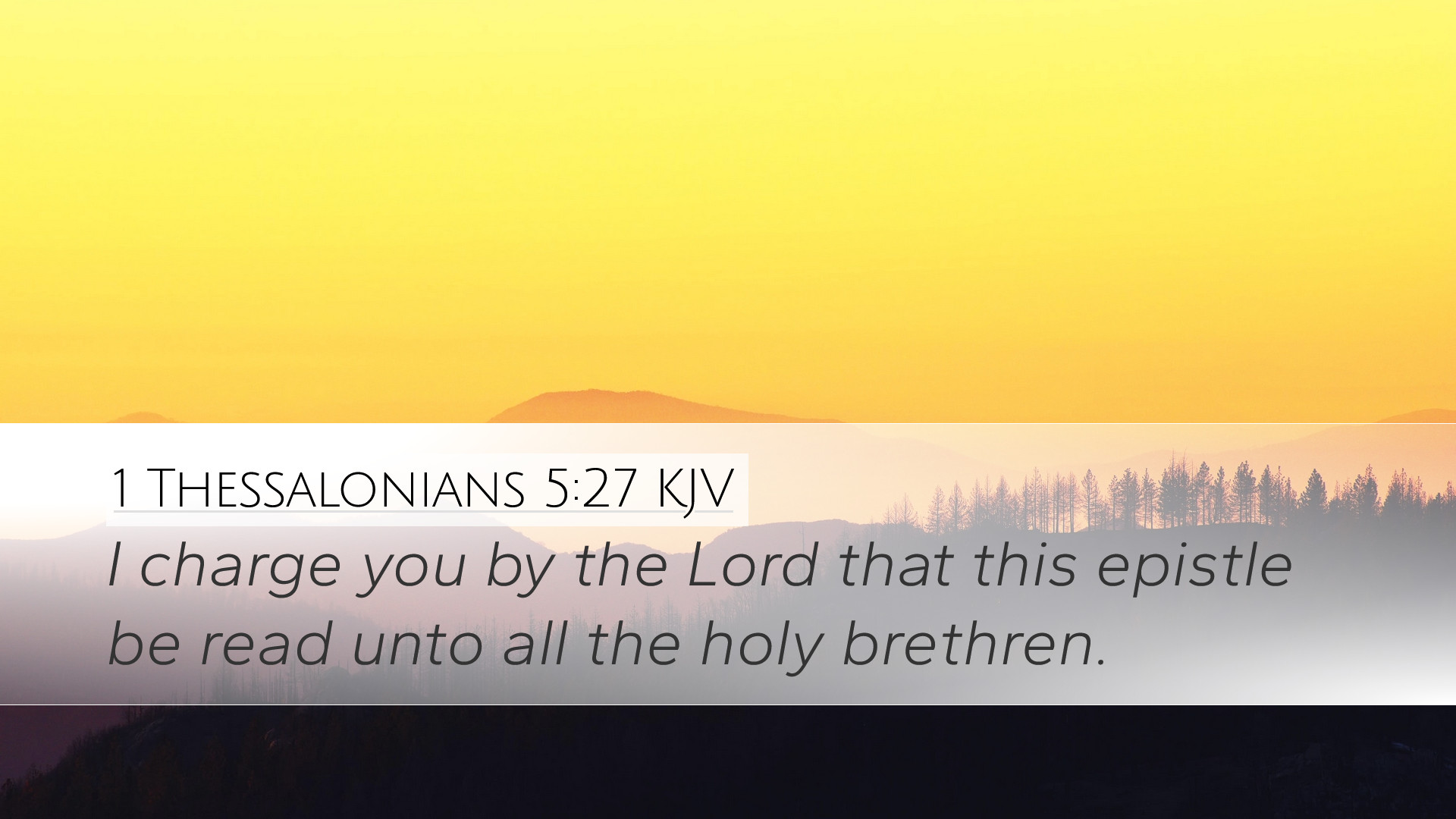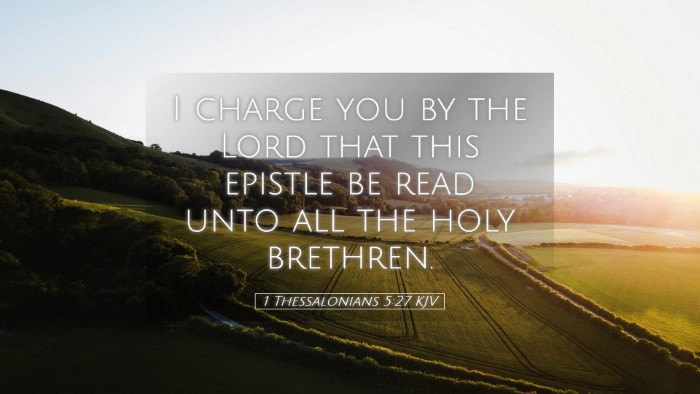1 Thessalonians 5:27 Commentary
Bible Verse: "I charge you by the Lord that this epistle be read unto all the holy brethren."
Introduction
The final instruction in Paul's first letter to the Thessalonians encapsulates a key principle of community worship and communication within the early church. Paul’s charge here highlights both the authority of the apostolic message and the importance of communal edification.
Contextual Background
Paul's letter to the Thessalonians was written during his missionary journey, likely while in Corinth. The church faced persecution but remained steadfast in faith. The instruction to read the letter publicly reflects early practices of engaging with scripture.
Interpretive Insights
-
Authority of the Epistle:
Paul uses strong language, "I charge you by the Lord," indicating the high importance of the instruction. As noted by Matthew Henry, this conveys that the reading of the epistle is not merely a suggestion, but a divine mandate essential for spiritual nourishment and unity within the body of believers.
-
Community Engagement:
Adam Clarke emphasizes that the reading must be done to "all the holy brethren," suggesting inclusivity and the communal aspect of worship. The term 'brethren' denotes a familial bond within the community, which is critical for collective spiritual growth.
-
Encouragement and Exhortation:
As Paul had earlier provided teaching on hope and conduct, reading this letter serves to reinforce those teachings. Per Albert Barnes, it acts as a reminder of the truths shared, encouraging believers amidst their trials and reinforcing the imperative of mutual support within the congregation.
-
The Role of Scripture in Worship:
This command to read reflects the early church's reliance on written scripture for faith and practice. Henry notes that public reading was foundational in developing theological understanding and fostering communal worship.
-
Continuity of Instruction:
Paul’s instructions bear a timeless quality, suggesting that scripture remains relevant to all generations of believers. Clarke observes that this approach cultivates a culture of continuous learning and obedience to God's word.
Theological Significance
The charge to read the epistle publicly carries profound theological implications:
-
Divine Communication:
It underscores the belief in divine authorship and authority of the scriptures, where God communicates His will and encourages the faithful to discern His guidance through reading and reflecting upon His word.
-
Necessity of Revelation:
As per Barnes, the public reading of scripture is essential for spiritual health, marking a necessity for believers to engage with God’s word collectively, recognizing that revelation can lead to transformation.
-
Unity in Faith:
This practice fosters unity within the body of Christ, reminding members of their shared faith and commitment. It serves to align hearts and minds toward the teachings of Christ and communal goals of discipleship.
Implications for Contemporary Ministry
The principles derived from this passage resonate in contemporary contexts:
-
Prioritize Scripture in Worship:
Ministers and church leaders should prioritize the public reading and teaching of scripture, not only as a liturgical element but as vital for encouraging and building up the congregation.
-
Foster Community Engagement:
Encouraging active participation and engagement with the Holy Scriptures cultivates a community atmosphere where believers feel a sense of belonging and responsibility to one another.
-
Emphasize Teaching and Learning:
In a world rife with distractions, providing regular opportunities for public reading and reflective teaching of biblical texts can lead to profound growth and deeper understanding.
-
Maintain Inclusivity:
Encouraging all members—regardless of their background or maturity in faith—to participate in the reading and discussion of scripture reinforces the idea of a shared journey towards understanding and living out the Christian faith.
Conclusion
Paul's charge in 1 Thessalonians 5:27 serves as a cornerstone for biblical engagement in both the early church and modern congregations. By prioritizing the reading and teaching of scripture, church leaders can foster unity, provide support amidst challenges, and ensure that the community continues to grow in understanding and faith. This verse encapsulates the need for collaboration in spirituality, as believers navigate their faith together through the lens of God’s Word.


